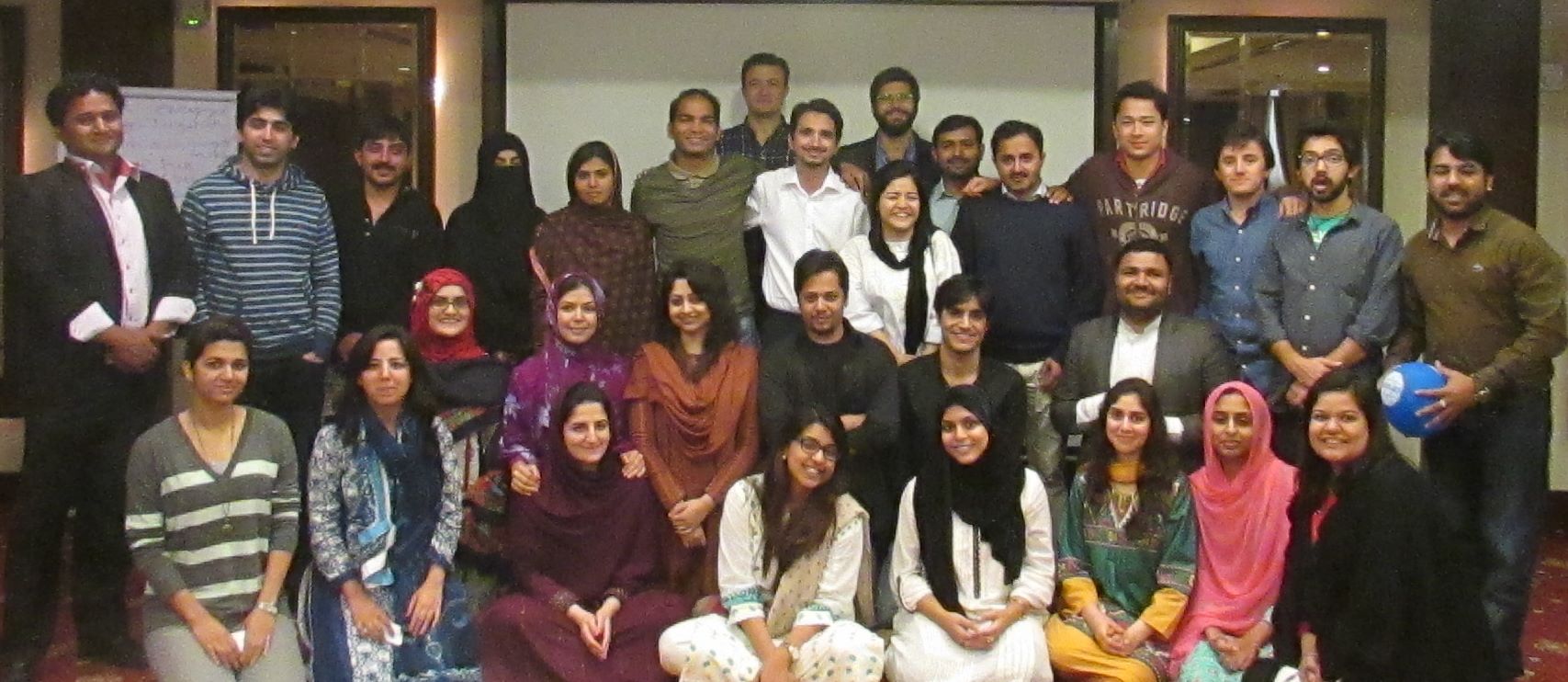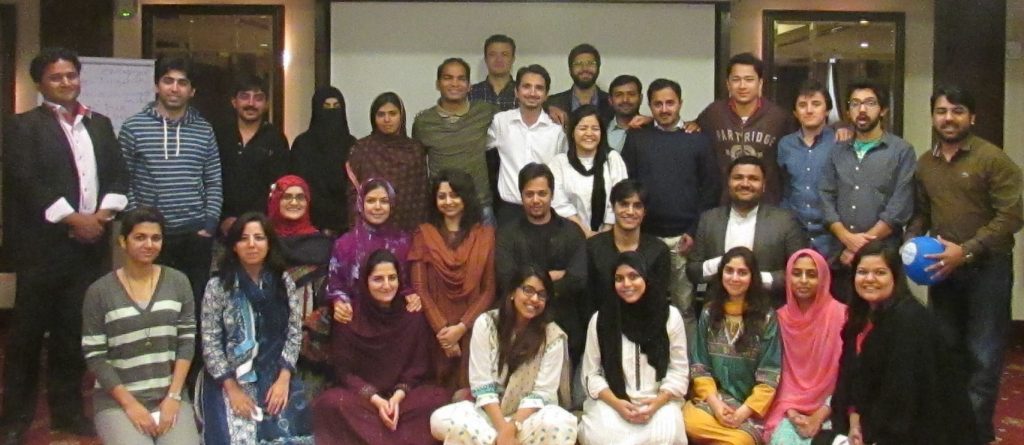 The 2012, 2013, and 2014 Emerging Leaders of Pakistan Fellows gathered in Islamabad for a reunion over a jam packed weekend in mid-February. Fellows Younas Chowdhry, Imran Khan, and Esha Iqbal led the larger group through teambuilding and vision setting activities. Shireen Naqvi, Founding Director of the School of Leadership (SoL) and senior consultant at Carnelian, shared her insights on personal development and visionary leadership with the Fellows. Sehar Tariq, United States Institute of Peace Pakistan Country Representative, led a workshop on developing personal pitches and improving public speaking skills. The Fellows also had a private briefing with Parliamentarians who represent the Prime Minister’s Youth Program.
The 2012, 2013, and 2014 Emerging Leaders of Pakistan Fellows gathered in Islamabad for a reunion over a jam packed weekend in mid-February. Fellows Younas Chowdhry, Imran Khan, and Esha Iqbal led the larger group through teambuilding and vision setting activities. Shireen Naqvi, Founding Director of the School of Leadership (SoL) and senior consultant at Carnelian, shared her insights on personal development and visionary leadership with the Fellows. Sehar Tariq, United States Institute of Peace Pakistan Country Representative, led a workshop on developing personal pitches and improving public speaking skills. The Fellows also had a private briefing with Parliamentarians who represent the Prime Minister’s Youth Program.
The South Asia Center hosted a public event at the Islamabad Marriott entitled “Pakistan’s Youth: Advocates for Change.” Yasir Abbas, Ifrah Faiz, and Mukesh Meghwar were the panelists but many of the other Fellows also participated in the question and answer segment. Audience members raised questions ranging from what obstacles do they face in achieving their vision for Pakistan to what advice they would offer other youth who are setting out to tackle some of Pakistan’s challenges.
Mukesh discussed the major challenge that is already plaguing the present and also the future of Pakistan: the rapid radicalization and religious extremism. It is not only dangerous for the survival and development of the non-Muslims in the country but also harmful for the majority of the Muslim population of Pakistan. For decades the state institutions and mainstream right wing political parties have exploited the people in the name of religion for their own vested political interests which are to remain in power, maintain the status quo, and block the entry of working class into politics. As a leader, Mukesh believes there is one main reason, along with several others, responsible for this ongoing spread of religious extremism. He also noted that people, especially youth who believe in the ideals of social justice, democratic and pluralistic values at the grass root levels, have been excluded from political participation and efforts for bringing social change. There is a need to create awareness and promote civil society’s political involvement in more constructive, secular, and inclusive ways. In this way, the youth can change the education, social and political institutions and influence the law making processes.
Yasir stressed on the need for the inculcation of political education among the youth of Pakistan and shed light on the essence of democracy. He stated that many of Pakistan’s problems stem out of these structural flaws in the system which are the consequences of not having a consolidated democracy in the country. Moreover, while discussing the contemporary situation of Pakistan, he highlighted how vital it is for Pakistan to get rid of this menace of terrorism and extremism. Emphasizing on the need to take risks and defy societal odds, he urged the youth to take initiatives which can benefit the society as a whole. In addition to his talks on local issues he stressed the need for Pakistan’s friendly ties with key neighboring countries like India and Afghanistan for regional stability.
Ifrah talked about embracing challenges and living life as an adventure. She strongly believes in women’s empowerment and wants every single child in Pakistan to fulfill and live their dream. In 2008 she joined the Pakistan Air Force in the GD (P) branch. After serving for three years, she joined the social sector. Now, she works for the empowerment of female Internally Displaced Persons (IDPs) and refugees by engaging them in healthy activities, providing them skill trainings, and also promoting the protection to victims of gender based violence and domestic violence.
